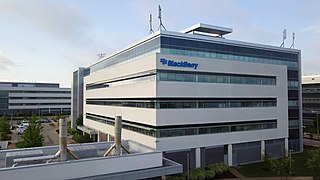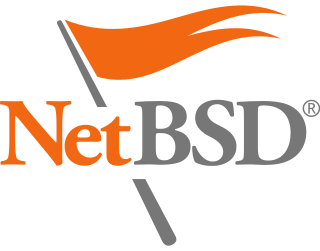Related Research Articles

QNX is a commercial Unix-like real-time operating system, aimed primarily at the embedded systems market.
The ICON was a networked personal computer built specifically for use in schools, to fill a standard created by the Ontario Ministry of Education. It was based on the Intel 80186 CPU and ran an early version of QNX, a Unix-like operating system. The system was packaged as an all-in-one machine similar to the Commodore PET, and included a trackball for mouse-like control. Over time, a number of GUI-like systems appeared for the platform, based on the system's NAPLPS-based graphics system.
The Internetworking Operating System (IOS) is a family of proprietary network operating systems used on several router and network switch models manufactured by Cisco Systems. The system is a package of routing, switching, internetworking, and telecommunications functions integrated into a multitasking operating system. Although the IOS code base includes a cooperative multitasking kernel, most IOS features have been ported to other kernels, such as Linux and QNX, for use in Cisco products.
Watcom International Corporation was a software company, which was founded in 1981 by Wes Graham and Ian McPhee. Founding staff were formerly members of Professor Graham's Computer Systems Group at the University of Waterloo, in Waterloo, Ontario, Canada. Watcom produced a variety of tools, including the well-known Watcom C/C++ compiler introduced in 1988.

BlackBerry Limited is a Canadian software company specializing in cybersecurity. Founded in 1984, it developed the BlackBerry brand of interactive pagers, smartphones, and tablets. The company transitioned to providing software and services and holds critical software application patents.
QNX4FS is an extent-based file system used by the QNX4 and QNX6 operating systems.
Dominic P. Giampaolo is a software developer who helped develop the Be File System for the Be Operating System (BeOS) and currently works at Apple Inc.
WATFIV, developed at the University of Waterloo, Canada is an implementation of the Fortran computer programming language. It is the successor of WATFOR.
The following tables compare general and technical information between a number of notable IRC client programs which have been discussed in independent, reliable prior published sources.
Dan Dodge is a cocreator of the QNX microkernel real-time operating system, with Gordon Bell. They began the project while students at the University of Waterloo in 1980. Dodge then moved to Kanata, Ontario, a high-tech area inside Ottawa, to start Quantum Software Systems. It was later renamed QNX Software Systems to avoid confusion with a hard drive manufacturer. The first commercial version of QNX was released for the Intel 8088 central processing unit (CPU) in 1982.
This is a list of models and clones of Amiga computers.
Oryx/Pecos is a proprietary operating system developed from scratch by Bell Labs beginning in 1978 for the express purpose of running AT&T's large-scale PBX switching equipment. The operating system was first used with AT&T's flagship System 75, and until very recently, was used in all variations up through and including Definity G3 switches, now manufactured by AT&T/Lucent Technologies spinoff Avaya. The last system based on Oryx/Pecos was the Avaya G3 CSI running release 13.1 Definity software. The formal end of sale was February 5, 2007. Although widely believed to be a Unix-like variant developed directly by Bell Labs, that is not the case, as it is not based on any version of Unix.
Valencia's Simple Tasker (VSTa) is an operating system with a microkernel architecture, with all device drivers and file systems residing in userspace mode. It mostly complies with the Portable Operating System Interface (POSIX), except where such compliance interferes with extensibility and modularity. It is conceptually inspired by QNX and Plan 9 from Bell Labs. Written by Andy Valencia, and released under a GNU General Public License (GPL). As of 2020, the licensing for VSTa is Copyleft.
Gordon Bell (1934–2024) was an American electrical engineer.

NetBSD is a free and open-source Unix-like operating system based on the Berkeley Software Distribution (BSD). It was the first open-source BSD descendant officially released after 386BSD was forked. It continues to be actively developed and is available for many platforms, including servers, desktops, handheld devices, and embedded systems.
BlackBerry Tablet OS is an operating system from BlackBerry Ltd based on the QNX Neutrino real-time operating system designed to run Adobe AIR and BlackBerry WebWorks applications, currently available for the BlackBerry PlayBook tablet computer. The BlackBerry Tablet OS is the first tablet running an operating system from QNX.
Middleware is a type of computer software program that provides services to software applications beyond those available from the operating system. It can be described as "software glue".
Thoth is a real-time, message passing operating system (OS) developed at the University of Waterloo in Waterloo, Ontario Canada.
References
- ↑ Bylinsky, Gene (17 March 2003). "Heroes of Manufacturing". Fortune . Fortune Media Group Holdings.